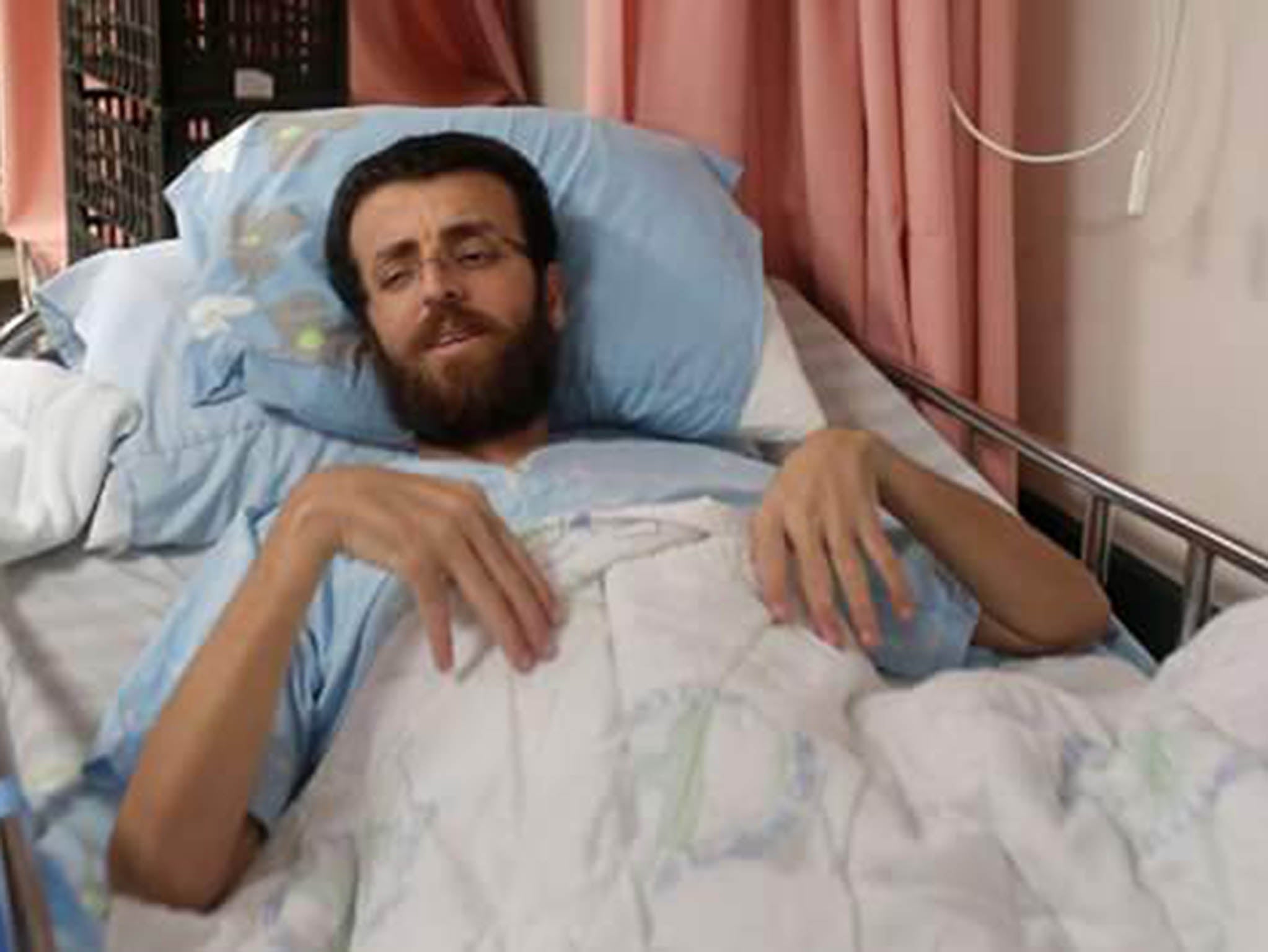Mohammed Al-Qeeq: Palestinian journalist on 77th day of hunger strike feared near death is refused transfer to West Bank hospital
On the 76th day of his hunger strike he had lost most of his sight and hearing abilities and could barely speak

Your support helps us to tell the story
From reproductive rights to climate change to Big Tech, The Independent is on the ground when the story is developing. Whether it's investigating the financials of Elon Musk's pro-Trump PAC or producing our latest documentary, 'The A Word', which shines a light on the American women fighting for reproductive rights, we know how important it is to parse out the facts from the messaging.
At such a critical moment in US history, we need reporters on the ground. Your donation allows us to keep sending journalists to speak to both sides of the story.
The Independent is trusted by Americans across the entire political spectrum. And unlike many other quality news outlets, we choose not to lock Americans out of our reporting and analysis with paywalls. We believe quality journalism should be available to everyone, paid for by those who can afford it.
Your support makes all the difference.A Palestinian journalist, who has been detained in Israel without charge or trial, is on his 77th day of hunger strike and has had his request to be transferred to a Palestinian hospital refused, despite being near death.
Mohammed Al-Qeeq was taken from his home by Israeli forces in November, leaving his wife and two children - aged one and four - who have not been able to see him since.
He has been in “administrative detention”, which is permitted under Israeli law to detain someone without referring to a judge on the grounds they are a threat to the country’s security.
The journalist, who works for the TV station Al Majd, is accused of being a Hamas activist. The 33-year-old claims he was interrogated and tortured, which Israeli officials told ABC Australia is “totally baseless”.
The Australian network reported the Israeli army told the network the journalist had been detained because of his “involvement in activism” and he is a “danger to local security”.
Four days after his arrest he was issued with an administrative dentition and went on hunger strike.
On the 76th day of his hunger strike he had lost most of his sight and hearing abilities and could barely speak.
Mr Al-Qeeq had requested to be moved from HaEmek hospital in Afula in Israel to Ramallah hospital in the West Bank.
Israeli officials have denied his request, despite the Israeli high court ruling to “freeze” his administrative detention.
On Wednesday, supporters will arrive at the hospital in Afula, accompanied by an ambulance and doctors, to transfer Mohammed Al-Qeeq for medical treatment in the Ramallah hospital.
His lawyer, Ashraf Abu Sneineh, said Mr Al-Qeeq faces a high risk of a stroke, has lost 40 kg in weight and has evidence of damage to his internal organs, reported Samidoun, the Palestinian prisoner solidarity network.
Mr Sneineh told ABC: “Today I was just at a meeting with doctors at the hospital… and they confirmed that he is extreme danger, where he could lose his consciousness.”
Another of his lawyers, Hanan Khatib, said in a statement: “Al-Qeeq says he is a journalist and his arrest is illegal.
“The court has frozen his administrative detention but decided he must stay in the hospital in Afula.
“Al-Qeeq refuses to stay in Israeli hospitals and will only accept medical treatment in the West Bank.”
Reporters without Borders, Amnesty International and the European Union have all shown serious concern for Mr Al-Qeeq’s situation, calling for him to be released.
Attorney Jihad Abo Raya explains: "In criminal law either a person is under arrest or he is free to move as he pleases, but for Palestinian detainees the court has created something new, they claim that Mohammed Al-Qeeq is no longer under administrative detention - but they also refuse to allow him to leave Afula hospital."
There are thought to be just under 600 Palestinians in administrative dentition is Israel, according to B’Tselem, the Israeli Information Centre for Human Rights in the Occupied Territories.
Join our commenting forum
Join thought-provoking conversations, follow other Independent readers and see their replies
Comments